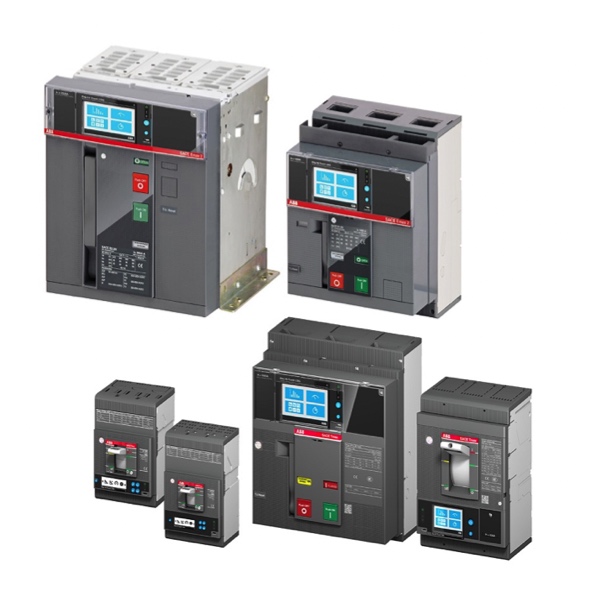ABB Molded Case Circuit Breakers

ABB Molded Case Circuit Breakers (MCCBs) provide reliable, configurable overcurrent protection for demanding industrial, commercial, and utility applications. Designed for systems up to 600 volts and current ratings as high as 6,000 amps, these breakers are engineered to protect electrical equipment from overloads and short-circuit conditions while supporting safe, continuous operation. ABB MCCBs are UL1066 approved and commonly installed in switchgear, motor control centers, and power distribution panels.
ABB MCCBs are available in 3-pole and 4-pole configurations and feature advanced thermal-magnetic and electronic trip units for precise fault detection. Thermal protection uses a bimetallic strip to respond to sustained overcurrent conditions, while magnetic protection provides instantaneous response to short circuits or current spikes. This combination allows ABB molded case circuit breakers to interrupt faults quickly and reliably, helping reduce equipment damage and unplanned downtime.
ABB’s SACE Tmax product families offer scalable solutions for a wide range of applications. The SACE Tmax T Series supports protection ratings up to 3200A and is available in fixed and plug-in versions with interchangeable trip units for flexible system upgrades. The SACE Tmax XT Series expands protection options with multiple frame sizes up to 1600A and advanced electronic trip units, including Early Fault Detection and Prevention (EFDP) functionality to improve selectivity, system reliability, and fault tolerance.
FAQs
Q: What is a molded case circuit breaker (MCCB)?
A molded case circuit breaker is an electrical protection device designed to interrupt overload and short-circuit conditions in medium- to high-current power distribution systems.
Q: What current ratings are available for ABB MCCBs?
ABB molded case circuit breakers are available in a wide range of ratings, with certain models supporting applications up to 6000 amps.
Q: What does UL1066 approval indicate?
UL1066 approval confirms that the breaker meets safety and performance standards for low-voltage AC and DC power circuit breakers used in industrial applications.
Q: What is the difference between thermal and magnetic trip protection?
Thermal protection responds to sustained overcurrent using a bimetallic strip, while magnetic protection reacts instantaneously to short circuits or sudden current spikes. Many ABB MCCBs combine both technologies.
Q: What is the difference between 3-pole and 4-pole MCCBs?
A 3-pole MCCB protects three-phase conductors, while a 4-pole MCCB includes an additional pole for neutral switching or protection, depending on system requirements.
Why Buy ABB Molded Case Circuit Breakers from RSP Supply
RSP Supply offers a comprehensive selection of ABB molded case circuit breakers to support high-amperage industrial power systems. Our lineup includes UL1066-approved models, multiple frame sizes, and configurable trip units to meet diverse application needs. Customers rely on RSP Supply for knowledgeable support, dependable sourcing, and industrial-grade electrical components that help ensure safe and reliable power distribution.

